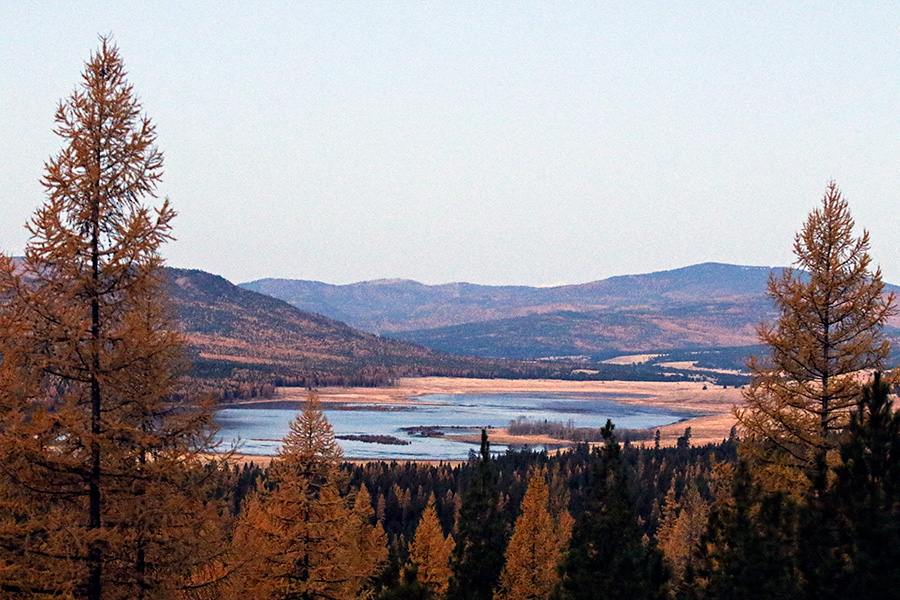The announcement that Washington-based timber giant Weyerhaeuser was selling its Montana parcels to an out-of-state buyer has for months raised management concerns about the future of the 630,000-acre acquisition, where longstanding access agreements allow people to use the lands for hunting and fishing.
Following the March 26 completion of the sale to Georgia-based Southern Pine Plantations (SPP), a top official with the new owner said it has no intention of reneging on that historic agreement, particularly as it relates to one of the largest private parcels under an annual block management agreement with Montana Fish, Wildlife and Parks for about 590,000 acres.
Although Weyerhaeuser’s block management contract is set to expire at the end of May, SPP Vice President Pat Patton said the plan is to renew the agreement.
“I don’t plan to cancel the open lands policy. We had the opportunity to cancel it and we decided to re-enroll in the block management agreement,” Patton said. “That is the plan.”
Weyerhaeuser sold the land to SPP for $145 million in cash, and because the parcels hold a much smaller inventory of merchantable saw logs than it once did, speculation was rampant about whether the land would be sold off for development piecemeal style.
The transaction was announced in December 2019, with Weyerhaeuser promising that the company’s three manufacturing facilities in Montana will not be affected by the sale, according to Devin W. Stockfish, president and CEO of Weyerhaeuser.
“We’re proud to continue supporting Montana communities through our mills and other local operations,” Stockfish said.
Patton said SPP plans to begin harvesting timber in the next month and has hired all of the foresters, hydrologists and administrative staff who were already in place at Weyerhaeuser offices in Libby and Kalispell, except for several employees who retired.
In addition to timber harvests, which Patton admits won’t be as productive as they were historically, SPP will explore other sources of revenue, including investing in conservation easements, selling carbon offsets and selling land to private investors.
The recent sale included an existing 110,000-acre conservation easement that preserves public access along the Thompson and Fisher rivers, and Patton said similar easements are being considered.
“It’s a big piece of property and we have a lot to figure out, but we are taking a multi-faceted business approach,” Patton said. “Obviously we have to evaluate things as they move forward, and selling land to private investors is a possibility, in which case access would be up to them. But that is why we are exploring conservation easements to protect that access forever.”
At the time of the sale, numerous sportsmen and wildlife-conservation organizations had been working on a deal with Weyerhaeuser to finalize an easement west of Kalispell on parcels that were included in the sale. Called the Lost Trail Conservation Easement, the agreement would provide public access in perpetuity.
“There is currently an easement in the works that would guarantee public access in perpetuity and maintain these timberlands as a working forest,” Marcus Strange of the Montana Wildlife Federation said. “We encourage collaboration in that process and look forward to new opportunities to work together.”
According to Patton, SPP has been in talks with organizations including the Trust for Public Land about moving forward with the Lost Trail easement.
“We have had meetings with the Trust for Public Land and we have talked to them about Lost Trail, the easement on that 7,200 acres,” Patton said. “We are moving forward. We have agreed to that, we have taken an assignment of that conservation easement and we are moving forward with it.”
Weyerhaeuser has been a household name in this corner of Montana since 2016, when it officially merged with Plum Creek Timber Co., forming the largest private owner of timberland in the U.S., with more than 13 million acres, including at the time 880,000 acres in Montana. Weyerhaeuser purchased Plum Creek for $8.4 billion.
While the transaction was major news for timber management in the state, it also touched a nerve with land users accustomed to Plum Creek’s proven history of allowing public access. After the merger, Weyerhaeuser was quick to address those concerns by renewing Plum Creek’s annual contract with Montana Fish, Wildlife and Parks through the state’s block management program. The agreement, which was voluntarily renewed by Plum Creek for decades, allows hunters and other recreationists to access the private land in exchange for state game wardens patrolling the property.
With Patton’s pledge to renew the deal, as well as to move forward on the conservation easement, stakeholders expressed relief. The Lost Trail project area runs along the southern border of the U.S. Fish and Wildlife Service’s Lost Trail National Wildlife Refuge, and would lead to the expansion of conservation projects on adjoining lands. It would protect the north slope of Dredger Ridge, for example, a favorite walk-in elk hunting ground that also serves as critical grizzly bear and lynx habitat.
Jim Vashro, president of Flathead Wildlife Inc., which as been working on the Lost Trail Conservation Project, said he remains hopeful the project will succeed.
“This effectively doubles the functional size of Lost Trail and I truly believe it is one of the most important pieces of ground up there,” he said. “I am hopeful that this opens the door for more similar type easements in the future.”
“Certainly the news that they are going to renew the block management agreement couldn’t be better, both for maintaining public access and protecting primary habitat for wildlife species,” Vashro added
